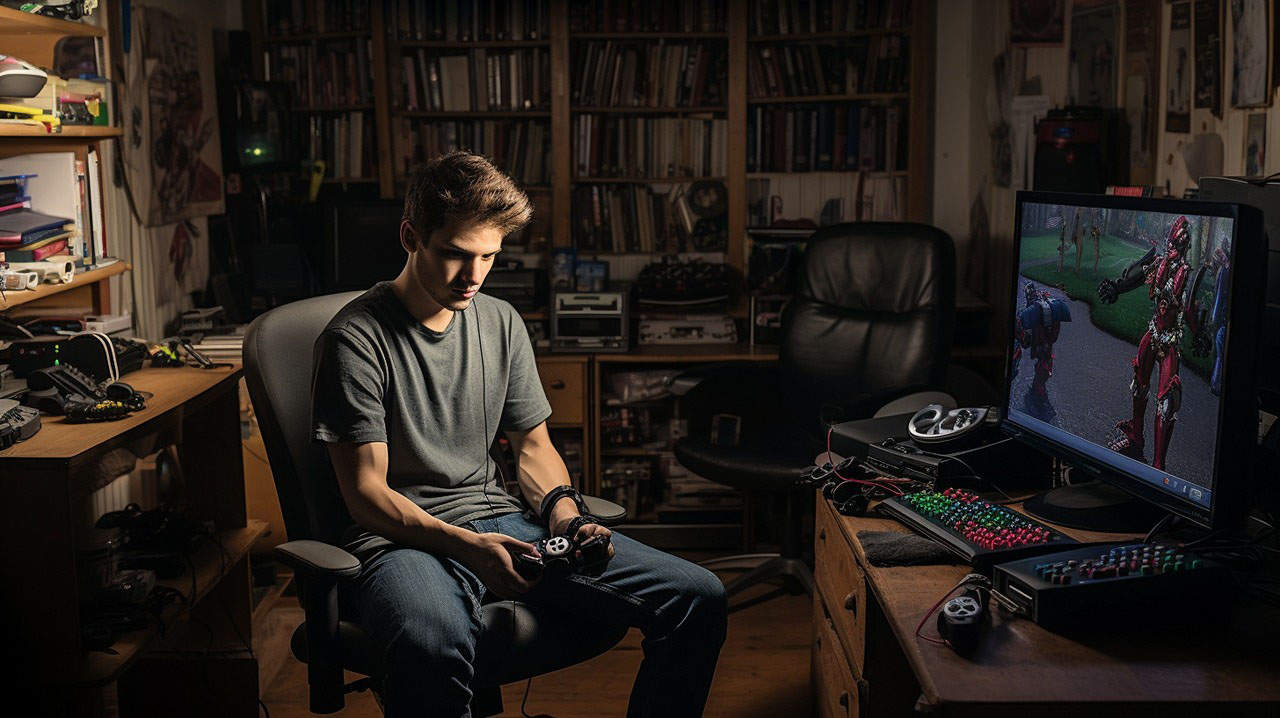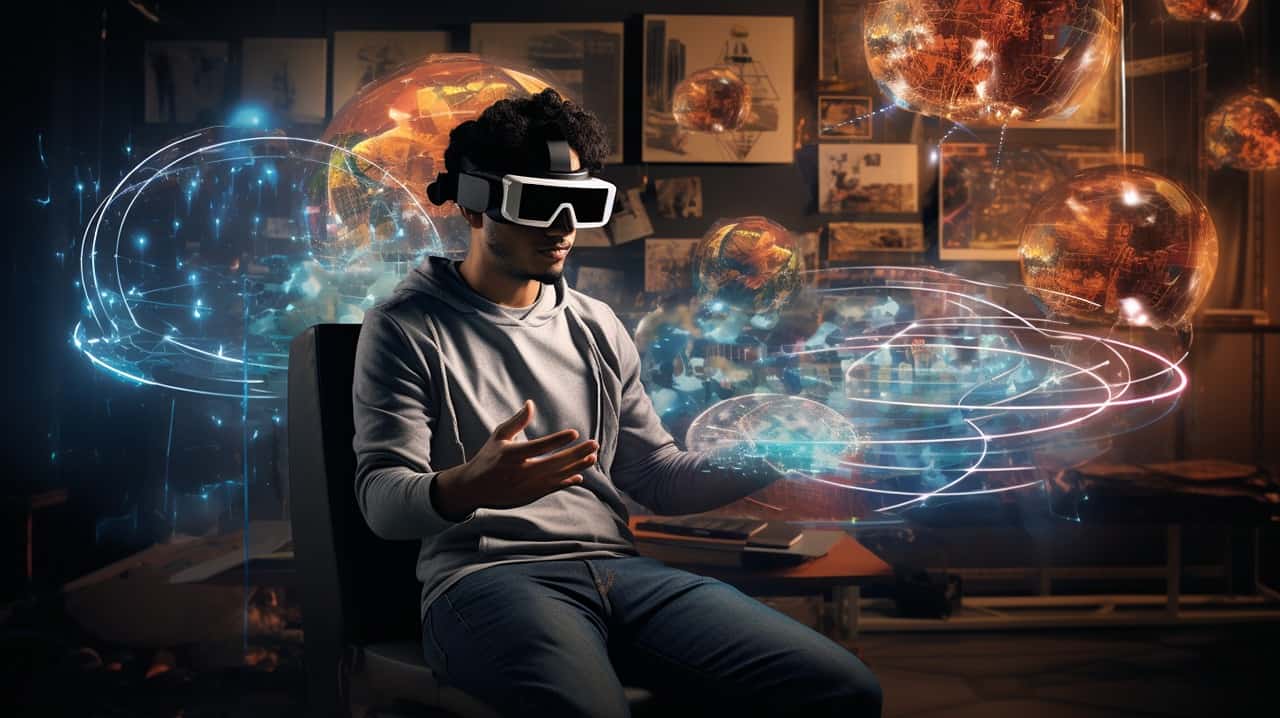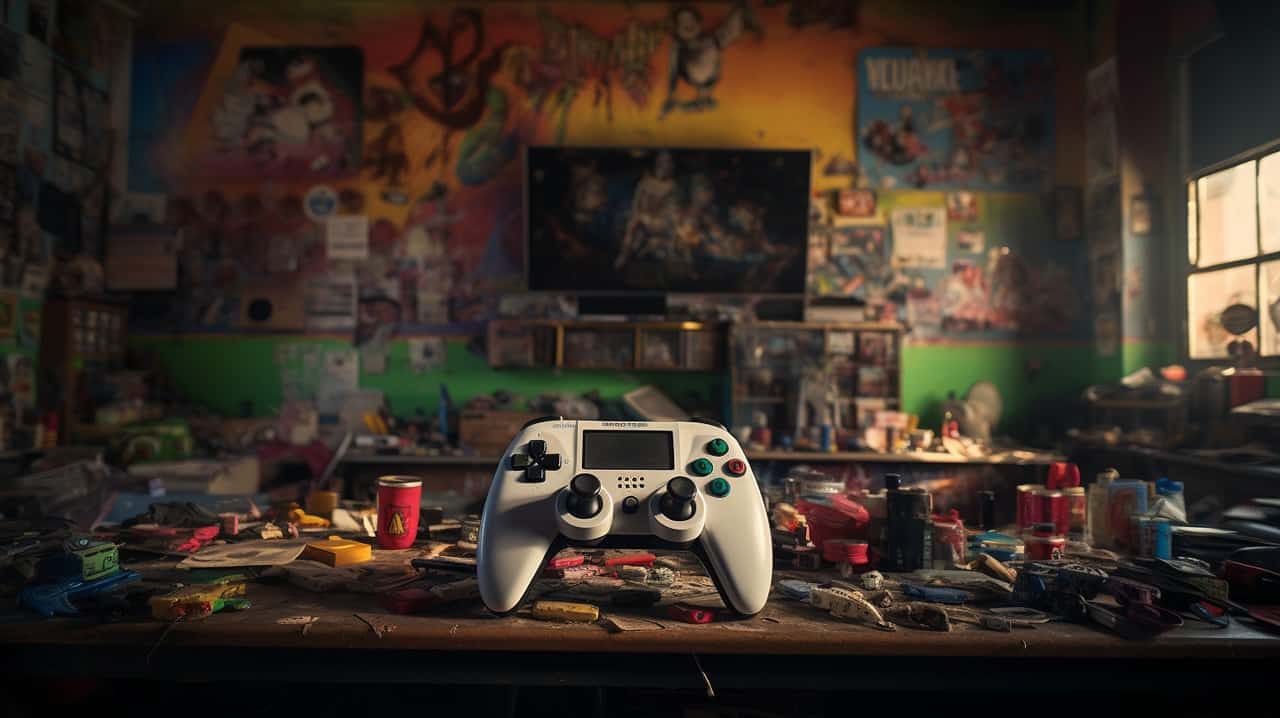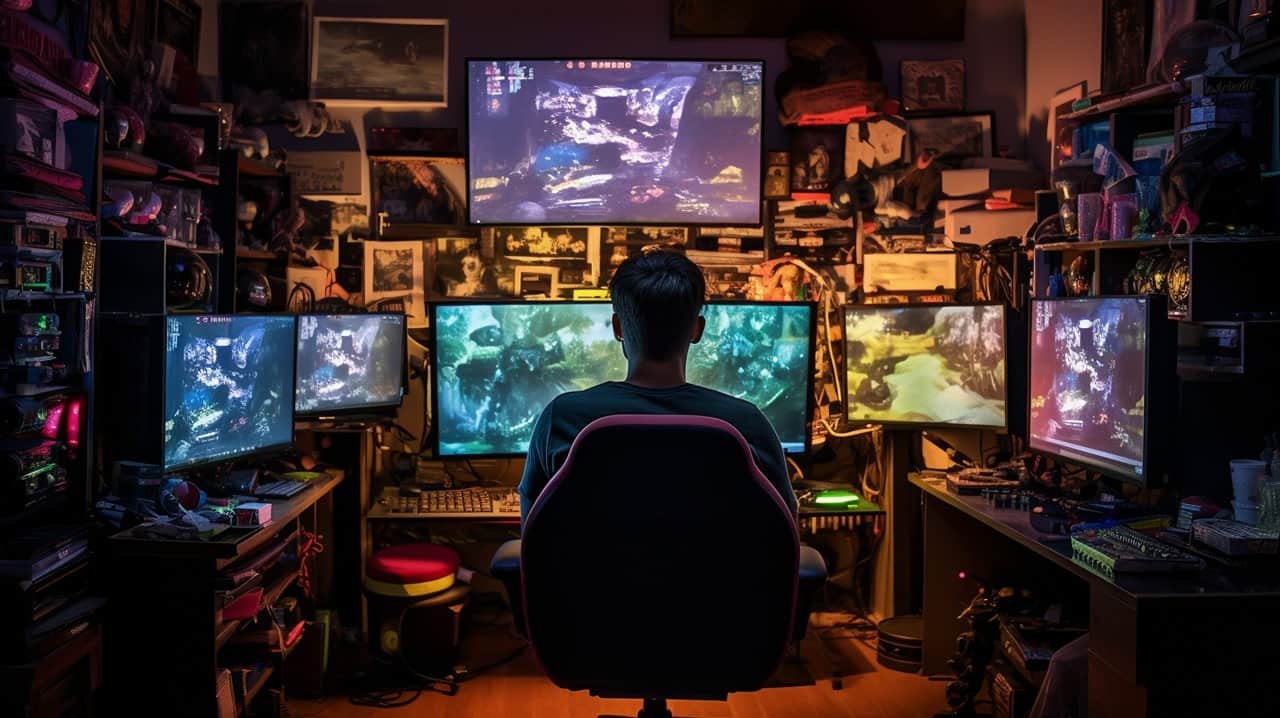Do you ever catch yourself questioning whether all that time spent on your favorite video game might actually be benefiting your brain? Trust me, you’re in good company; it’s a thought that’s crossed the minds of many.
And here’s an interesting bit of news: several games out there could indeed serve as a workout for your mind. In this article, we’ll explore some intriguing research and real-life stories that highlight how gaming can potentially give our cognitive abilities a boost.
Even innovative leaders like Elon Musk enjoy gaming as a way to sharpen their cognitive abilities. Known for his extraordinarily high IQ, Musk has shared that he finds certain video games mentally stimulating. This just goes to show that engaging in the right games can give our brains a vigorous workout regardless of age or profession. The cognitive benefits are there for the taking if we make time for quality gameplay.
So stay tuned—it looks like we’re about to unravel the secrets behind gaming and intelligence!
Key Takeaways
Video games can improve IQ, memory, and problem-solving skills.
Different types of games like puzzles, strategy, and role-playing help grow different brain abilities.
Playing too much can lead to addiction; it’s important to balance gaming with other activities.
Games are being used in schools to make learning more fun and interactive.
Table of Contents
The Science Behind Video Games and Cognitive Enhancement

Diving into the science of gaming, researchers suggest that engaging in video games might be more than mere entertainment; it could be a workout for the brain. Studies indicate that playing certain genres may enhance IQ, and gamers often exhibit improved memory, learning capabilities, and heightened attention to detail.
These benefits stem from the complex problem-solving and strategic thinking required in many games. As we navigate through virtual worlds or manage resources in a real-time strategy game like “League of Legends,” our minds are constantly being challenged to adapt and learn new skills—a process that could potentially sharpen intelligence over time.
Video games and IQ development
I recently read that playing good video games might actually make you sharper. They can up your IQ by a few points. That’s like doing brain exercises but way more fun! Think about it: when you’re deep into a strategy game or trying to figure out a tough puzzle, your brain is working hard.
You’re learning new things and getting better at solving problems.
The results showed that those children who spent an above-average amount of time playing video games increased their intelligence by approximately 2.5 IQ points more than the average.
https://gamequitters.com/video-games-make-you-smarter/
Some folks say games just waste time, but I don’t agree. Every hour spent on a cleverly designed game could be turning my thinking skills up a notch. And we all know smarts aren’t just for school; they help in everyday life, too! So next time someone tells me gaming is frying my brain cells, I’ll tell them it’s the opposite – I’m training my mind to be quicker and smarter!
The effects of gaming on memory and learning
Games are like brain workouts. Just as you go to the gym to get stronger, you play games to make your memory better. When I play a game, I need to remember the rules and what moves worked before.
This helps my brain hold on to information just like my muscles remember how to lift weights.
Learning is huge in gaming, too! It’s not just about shooting bad guys or building cities. Every time I start a new level, it gets tougher, and that pushes me to learn new strategies.
My problem-solving skills get better without even thinking about homework or tests at school. The more I play, the sharper my mind feels, and it shows up when I need to focus or quickly pick up new stuff in real life.
Improving attention and problem-solving skills through gameplay
I’ve noticed that when I’m deep into a game, everything else just fades away. My focus sharpens, and it’s like my brain kicks into high gear. This isn’t just me getting sucked into another world; it’s actually a mental workout.
You see, lots of games are filled with puzzles to solve or enemies to outsmart. Each challenge makes you faster at thinking on your feet and better at paying attention to details.
Let me tell you about problem-solving in games—it’s intense! Imagine trying to figure out the best way to take down a boss or crafting the perfect strategy on the fly. It’s all about making smart decisions, often under pressure.
That rush is not only exciting but also super good for our brains. Think of each level as a new puzzle that helps sharpen those problem-solving skills we use every day without even realizing it!
Exploring Different Game Genres and Cognitive Gains

Delving into the realm of different game genres, it’s not just about entertainment; these digital playgrounds are mental gyms in disguise. Take puzzle games, for instance – they’re like boot camp for your brain, sharpening logic and enhancing spatial awareness with each level conquered.
Platformers challenge your timing and reflexes, pushing you to adapt quickly and learn from repeated trials.
Then there’s the strategist’s dream: Real-Time Strategy (RTS) games. They don’t just demand quick thinking; they sculpt your ability to manage resources and anticipate opponents’ moves.
It’s a dance of decisions that can boost your strategic finesse over time.
And let’s not forget Role-Playing Games (RPGs). These aren’t merely escapades in fantastical worlds; they’re exercises in empathy as you step into others’ shoes and navigate complex moral landscapes.
By making choices that shape narratives, RPGs stretch your emotional intelligence alongside your imagination.
The mental workout of Puzzle and Platformers
I love diving into a good puzzle or platformer game. These games are like a gym for my brain. They push me to think in new ways. It’s all about solving problems and jumping from one challenge to the next.
My memory gets better because I need to remember patterns and game rules. At the same time, my fingers get faster as I move through levels with speed.
As I play these games, they test how well I pay attention to small details. This skill helps me outside of gaming, too! Puzzle and platformer games also shape up my spatial reasoning—figuring out shapes and spaces quickly is key here.
Plus, they make sure my hand-eye coordination stays sharp, which is super useful for all sorts of daily tasks.
Strategic thinking in Real-Time Strategy (RTS) games
Playing RTS games is like being a commander on the battlefield. You need to plan your moves, think fast, and make smart choices to win. Every decision counts as you manage resources, build bases, and control armies.
It’s a mental workout that can sharpen your brain.
In these games, I’m always learning how to think several steps ahead of my opponent. The excitement comes from outsmarting them with clever strategies. Research says RTS gamers can make quicker decisions and handle complex thoughts better.
This helps not only in-game but also in real life when facing tough challenges or making important plans for the future.
Role-Playing Games (RPGs) and empathy building
Role-playing games (RPGs) give us a chance to walk in someone else’s shoes. We dive into stories and make choices that affect our game friends’ lives. This stepping into another character helps build empathy.
RPGs are not just about fighting dragons or collecting treasure; they teach us to understand what others feel.
As we play, we often face tough decisions that can help or hurt other characters in the game. Our actions can save a village or let down a friend in the story. Through these experiences, we learn how different choices change things for others.
It feels like practicing real-life skills and growing emotional intelligence right alongside our game characters!
Balancing the Benefits and Risks of Video Gaming

Exploring the impact of video games often sparks a heated debate: can they really enhance our smarts, or do they usher in a host of problems? Well, I’m here to break down the facts.
As an avid gamer myself, I’ve seen both sides of this coin. Sure, there’s solid evidence that gaming can sharpen memory and problem-solving abilities – not to mention some games are like push-ups for your brain with their complex puzzles and strategic demands.
But let’s not overlook the potential pitfalls; excessive screen time might lead us down the path to addiction or disrupt our physical health. The trick is finding that healthy balance – knowing when it’s time to put down the controller after feeding your mind with some good ol’ digital workout.
In classrooms around the globe, educators have begun unlocking video games’ potential as learning tools – even Minecraft is getting in on education! And these benefits aren’t just for kids; seniors are joining in, too, reaping cognitive rewards while warding off age-related decline.
Potential for addiction and overuse
I need to tell you that as much as video games can be amazing for your brain, there’s a flip side. Playing too many video games can get addictive. It’s easy to lose track of time and play for hours without even noticing.
Before you know it, gaming isn’t just something you enjoy – it starts taking over stuff like hanging out with friends, getting work done, or even just going outside.
It’s super important to play in moderation. Think about how you’d balance a good meal – some veggies here, a bit of protein there – the same goes for gaming. Mix in different activities throughout your day so that gaming is one part of what you do, not everything.
Make sure those epic battles and awesome quests don’t become more important than real-life adventures!
Finding the sweet spot for gaming duration
Playing video games a lot can help you get better at them. But there’s a best amount of time to play, so your brain gets the most good stuff from games.
- Set time limits for each gaming session
- Decide how many hours you’ll play each day.
- Make sure to stick to that time, using an alarm if needed.
- Take breaks during long sessions
- Stand up and stretch every hour.
- Look away from the screen to rest your eyes.
- Mix gaming with other activities.
- Plan times for hobbies, hanging out with friends, and being outside.
- This mixture keeps your brain fresh and ready for more gaming later.
- Listen to how you feel
- Stop playing if you start feeling tired or frustrated.
- Your body tells you when it’s time for a break or to stop for the day.
- Notice changes in your sleep
- If games make it hard to fall asleep, play earlier in the day.
- Getting enough sleep helps your mind work at its best.
- Keep track of your game time
- Write down when you start and stop playing each day.
- Seeing how much you play helps balance game time with other important stuff.
Video Games in Educational Settings

5. Video Games in Educational Settings: Innovative schools are adopting video games like Minecraft to revolutionize learning, turning traditional classrooms into hubs of interactive and immersive educational experiences – get ready to discover how gaming is reshaping education!
Incorporating games like Minecraft in the classroom
Games like Minecraft are finding their way into classrooms, and it’s pretty cool. Teachers use them to create a world where books meet play. It turns out that digging for resources in Minecraft can actually dig up real-world skills.
We’re talking about better reading, working together, solving tough puzzles, and thinking on your feet.
Imagine learning with a game you love at school! You’d build stuff and solve problems while having a blast with your friends. This is happening right now with Quest to Learn schools in New York using games to help students learn better in subjects like English and Math.
Kids are getting smarter by playing more of what they enjoy – how awesome is that?
Case study: Quest to Learn Middle School
Quest to Learn Middle School is doing something pretty cool with video games. Instead of just reading books or watching videos, this school uses games to help students learn and get better at solving problems.
They’ve found that when kids play educational video games as part of their classes, they actually become sharper at figuring things out and even do better in school.
Quest to Learn (Q2L) is a public middle and high school in New York City.[2] The school is operated by the New York City Department of Education and is located in the Bayard Rustin Educational Complex in the Chelsea neighborhood of Manhattan.
https://en.wikipedia.org/wiki/Quest_to_Learn
Kids at Quest to Learn are more into what they’re learning because the games make it fun. It’s like when you’re playing a game; you want to beat the level, so you try harder, right? That’s what these students are doing, but with their schoolwork.
Their grades go up because gaming teaches them how to think on their feet and solve challenges faster. It makes sense — use something you love (like video games) to help master tough subjects in class!
Video Gaming for Different Age Groups

Video gaming transcends all ages, offering cognitive boosts for the young and the promise of graceful aging for seniors. Dive into how different generations harness the perks of playtime!
Cognitive, emotional, and physical benefits for the elderly
I’ve seen a lot of talk about how video games can help young people grow smarter and faster. But it’s not just kids who get all the perks; older folks can score some serious gains, too.
- Games sharpen the mind. Just like puzzles, they keep the brain busy, which can slow down memory loss.
- Playing games that make you think and plan can protect against brain diseases like Alzheimer’s.
- They boost mood and can lighten feelings of sadness or loneliness, which is super important for emotional health as we age.
- Some games need fast moves and good coordination. This keeps hands and fingers nimble.
- Social games connect seniors with others. Making friends online beats feeling isolated any day!
- Video games that simulate walking or dancing can help with staying active, even if it’s just moving your arms around.
- Games use bright colors and big movements that are ace for eyesight, especially if someone has a lazy eye.
- Learning new games means learning new tech skills, keeping older brains extra sharp.
- Gaming can give a sense of achievement, which puffs up self-esteem – which feels pretty good at any age!
- They offer an escape to fun worlds where anyone can be a hero – who said playtime has to end when you grow up?
Video games as tools for successful aging
Older folks are finding that video games can be more than just fun. They’re tools for keeping their minds sharp and bodies active. Imagine playing a game that makes your brain work hard, like a muscle getting stronger with each puzzle you solve or level you beat.
This isn’t just for young people; it’s turning into a smart way to help older adults stay quick and clear-headed.
Let’s talk about how gaming fits into aging well. Games with stories or problems to solve are super good for our brains as we get older. They make us think fast, remember more, and pay better attention to details around us.
Even moving a character on the screen is great exercise for our hands and eyes working together! Plus, they add some joy to everyday life, which is always important no matter your age.
Conclusion: Embracing the Cognitive Advantages of Video Games
It turns out that video games do more than just fill our free time. They sharpen our minds in many ways. From better memory to faster decision-making, playing these games can be a real brain booster.
Sure, they’re fun, but they also give us skills we use every day. Let’s keep enjoying the worlds and challenges in games as we level up our brains, too!
FAQs About Video Games and Cognitive Enhancement
Can playing video games make you smarter?
Yes, some studies show that geeky hobbies like gaming can improve creativity, attention span, problem-solving skills, and critical thinking.
Do strategy games help with your brain?
Strategy games, including real-time strategy and role-playing games (RPG), could boost your decision-making abilities and help you learn to solve problems better.
Are there any good things about action video games?
Action video games may enhance visual search skills, attentional control, and multitasking ability and increase selective attention, which could be helpful for learning.
Is it true that video games can teach you new things?
Absolutely! Games often require players to think creatively or even learn a second language. They might provide simulations that aid in understanding complex concepts.
Can playing too many video games be bad for you?
While there are benefits of video games, such as improved social skills and mental flexibility, too much gaming might lead to addiction or other mental health conditions.
How do different types of game genres affect intelligence development?
Different genres, from sandbox game designs to interactive RPGs, work on various aspects of the mind, like memory, self-awareness, emotional intelligence (EQ), and cognitive flexibility through trial-and-error learning.



